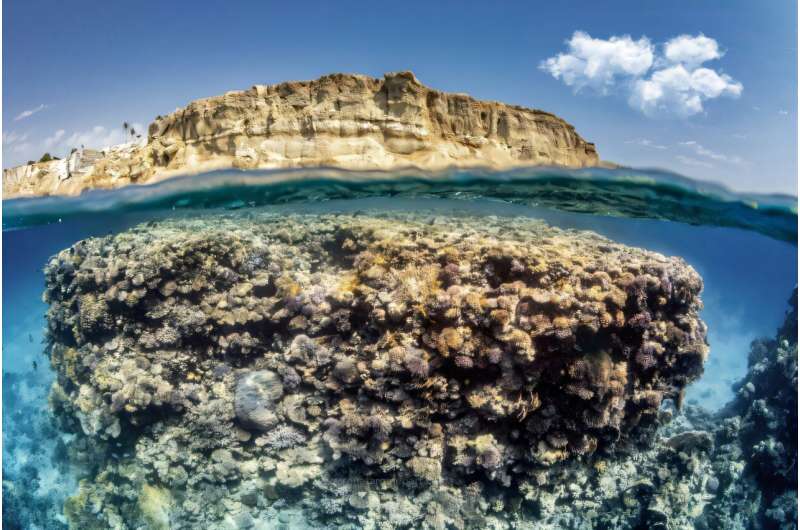This article has been reviewed according to Science X's editorial process and policies. Editors have highlighted the following attributes while ensuring the content's credibility:
fact-checked
peer-reviewed publication
trusted source
proofread
Rising temperatures threaten reefs—study pinpoints where conservation efforts are most needed

New science from the Wildlife Conservation Society (WCS) has mapped coral reefs across the Western Indian Ocean, uncovering unexpected pockets of climate-resilience that could offer hope for conservation efforts in the region.
By combining AI models with data from 1,000 field studies, researchers have identified reefs that may withstand climate change better than once feared, opening new doors for protecting the most biodiversity-rich ecosystems in the ocean.
"Past models have been coarse and often relied on just a few temperature variables," said Dr. Tim McClanahan, Director of Science for WCS's Global Marine Program. "Our model leverages the full capacity of global environmental mapping and machine learning, creating new possibilities for finding resilient reefs that need protection."
By considering many environmental variables on a small scale, the new model produces a more detailed and varied outlook for coral reefs, challenging more severe predictions from previous models, including the 2023 Intergovernmental Panel on Climate Change (IPCC) report. Under a 1.5°C warming threshold, 70% of reefs were predicted to experience only modest declines (less than 5%) in coral cover and species diversity by 2050.
However, if emissions were to continue unmitigated, coral cover could decline by 40% by mid-century. In WCS's new model, about 5% of coral reefs have been identified to potentially benefit from changing conditions, suggesting potential refugia where corals could continue to thrive despite warming.
"As an early career scientist, understanding the complex interactions between climate change, human activities, and local conditions is crucial for informing targeted local conservation measures to protect and sustain coral reefs in a changing world," added Maxwell Azali, a co-author on the study and Fisheries Analyst at Global Fishing Watch.
The study, published in the journal Ecosphere and titled "Predicting Coral Reef Diversity in the Western Indian Ocean Using Fine-Scale Modeling," combines these predictions with coral cover data from prior research, enabling researchers to map coral resilience across the Western Indian Ocean.
"In our work we've found that around 30% of reefs in the world could withstand a 1.5°C temperature increase," added Dr. McClanahan. "But as that threshold has passed, only 15% of reefs are expected to show resilience in a scenario without urgent carbon mitigation. This means we should expect the more extreme model scenarios to emerge unless humans reduce greenhouse gas emissions now."
As the world grapples with rising temperatures and accelerating ocean heat waves, the study underscores the urgency of significant global greenhouse gas reductions to curtail even more extreme scenarios. Researchers also hope that their modeling methods are deployed to help scientists worldwide map biodiversity with higher precision, improving efforts to protect other ecosystems that are also at high risk from climate change.
More information: Tim R. McClanahan et al, Complex multivariate model predictions for coral diversity with climatic change, Ecosphere (2024). DOI: 10.1002/ecs2.70057
Journal information: Ecosphere
Provided by Wildlife Conservation Society




















